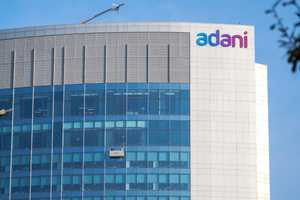Will a reduction in inflation pave the way for further reduction in interest rates?

Business Business: India’s retail inflation hitting a 77-month low in June has fuelled speculation of another rate cut among economists and experts. This could open the way for a rate cut by the Reserve Bank of India (RBI) in the upcoming August monetary policy.
So far, the central bank has reduced the repo or benchmark rate by 100 basis points (BPS) since February to boost growth, with reductions of 25 basis points each in February and April, respectively, and 50 basis points in the June policy.
Here’s an explanation of the factors the RBI may consider while deciding on rates in the August policy.
What changes will the August policy bring on the inflation front?
After a further fall in consumer price index (CPI) inflation in June, CPI inflation reached 2.7 per cent in Q1FY26, 20 basis points lower than the RBI’s estimate of 2.9 per cent.
Economists tracking July’s core inflation expect inflation to ease to below 2 per cent (1.8-1.9 per cent) with prices of cereals, pulses and fruits coming down further. This would lead the RBI to lower its inflation forecast for the upcoming quarters in the August policy.
ICRA chief economist Aditi Nayar said that amid a favourable outlook for July 2025 (1.9 per cent), the inflation figure in Q2FY26 is expected to be significantly lower than the MPC’s current forecast of 3.4 per cent, which could lead the MPC to further lower its CPI inflation projections for FY26 from the current 3.7 per cent.
Barclays said in a report, “We believe CPI inflation could ease further in July. Average CPI inflation in the first quarter of FY25-26 has been 20 basis points lower than the MPC’s forecast and may remain at low levels in the second quarter as well.”
Will inflation drive a rate cut?
That is probably the case, as some economists believe that moderating inflation and future prospects may make the central bank comfortable in cutting rates. But a pause in any rate action at the August policy meeting is likely and cannot be ruled out, as the pause will give the RBI an opportunity to assess incoming data on the impact of monsoon on inflation and the impact of previous rate cuts on the pace of growth.
The MPC is expected to meet for another round of rate-setting deliberations between August 4 and 6, by which time at least a partial monsoon will have arrived in the country. This will provide the RBI with incremental data to consider factors influencing interest rates and the MPC in October this year may be more informed to take a calculated step on the benchmark rate.
“There will also be clarity on the impact of US bilateral trade tariffs on India’s merchandise exports. India is expected to reach a trade deal with the US by August. In addition, there will also be some clarity on the Fed policy outlook as the impact of tariffs on US growth and inflation becomes more evident,” said a report by IDFC First Bank.





